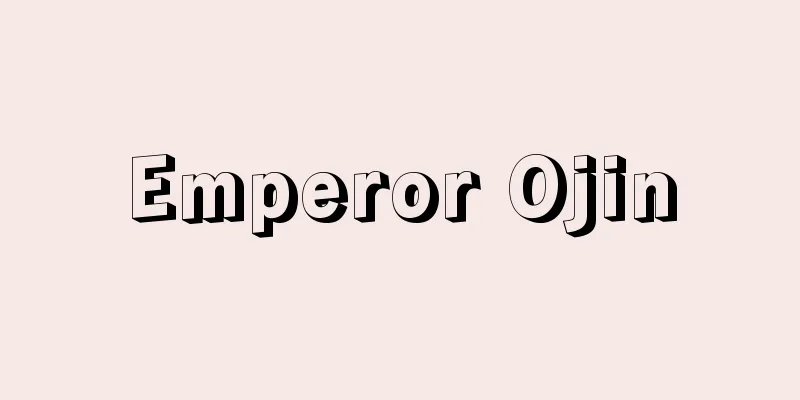Heir - Katoku

|
The term "chief" refers to the person who controls a family, and in ancient times meant the head of the clan. During the Muromachi period, it came to mean the person who inherited the family and even the inherited land. Among the warriors who arose in the latter half of the Heian period, there was a strong trend towards blood-line solidarity. This blood-line solidarity was called a clan, a family, or a lineage, and the head of this clan was called the head of the family. At the time, it was customary for land to be distributed among the successors during one's lifetime, and this blood-line group was an organization for defending the family's land. The successors who received the property each established their own family, but were subject to the military leadership of the head of the main family. After the Kamakura Shogunate was established, when the Shogunate summoned its vassals, the order was first conveyed to the head of the family, who then passed it on to his family members, who then led the family members into battle. In terms of land ownership, the relationship between the head of the family and the family members was like that between a eldest son and a bastard, meaning that land was divided among several children (bastards), and one of them, the legitimate son, inherited the entire land. In the Muromachi period, the law of single inheritance of property developed, and the father's land was inherited by the eldest son alone, with the other children receiving support from him, and the relationship between the head of the family and the family members disappeared, and the head of the family came to mean the person who inherited the family, as well as the land that he inherited. In the Edo period, for samurai, inheritance due to death was called succession to the family name (in the case of daimyo, inheritance of the estate), whereas inheritance due to retirement was called succession to the family headship. In this case, the word "family headship" meant a stipend. Even among commoners, the family property was called "family headship." However, the term "family headship succession" remained in the old Civil Code after the Meiji period. [Ryosuke Ishii] [Reference] |Source: Shogakukan Encyclopedia Nipponica About Encyclopedia Nipponica Information | Legend |
|
家族を統督する者で、古くは一族の首長を意味した。室町時代には家を継いだ者、さらにはその相続した所領をも意味するようになった。 平安時代の後半期に勃興(ぼっこう)した武人の間には血族的団結の風が強く行われた。この血族的団結は一族、一門、一流などとよばれたが、この一族の首長を家督とよんだ。当時、所領は生前に諸子に分与する慣習であったが、一族の所領を防衛するための組織がこの血族的集団であった。財産を分与された諸子はそれぞれ一家を創立したが、本家の家督の軍事的統率に服した。 鎌倉幕府成立後は、幕府が御家人(ごけにん)を招集する場合には、その命令はまず家督に伝えられ、家督からその一族の輩(ともがら)に伝達され、家督は一族の輩を率いて出陣した。家督と一族の輩との関係は、所領の面からみれば、総領と庶子との関係、すなわち数人の子(庶子)に所領を分与しながら、そのなかの1子である嫡子に全所領を総領させる形態がとられていた。室町時代になると、財産の単独相続法が発達し、父の所領は嫡子1人が相続し、他の諸子はその扶助を受けるようになって、家督と一族の輩との関係は消滅し、家督は家を継いだ者を、さらにはその相続した所領をも意味することになった。 江戸時代には、武士につき、死亡による相続を跡名相続(大名の場合は遺領相続)とよぶのに対し、隠居による相続を家督相続とよんだ。この場合の家督は封禄(ほうろく)の意味である。また庶民の間でも家産を家督と称した。なお、明治以降「家督相続」ということばは旧民法に残された。 [石井良助] [参照項目] |出典 小学館 日本大百科全書(ニッポニカ)日本大百科全書(ニッポニカ)について 情報 | 凡例 |
<<: Inheritance of the family headship
>>: Kadogawa [town] - Kadogawa
Recommend
《Vozniknovenie zhizni na zemle》 (English notation) Vozniknoveniezhizninazemle
...He was one of the first to systematically expl...
FAMILY
A Japanese movie released in 2001. Directed by Tak...
Norana - Norana
A dicotyledonous perennial plant of the Nolanaceae...
tholichthys
...The spawning season is said to be from spring ...
Prince Sanehito
Year of death: July 24, 1586 (September 7, 1586) Y...
Firewood House - Takiginosho
The land of Iwashimizu Hachimangu Shrine was locat...
Oresme, N.
…During this time, speculations about infinity we...
Rose cockatoo (Pink parrot) - Rose cockatoo (English spelling)
A bird of the Psittacidae family, order Psittacida...
Solothurn (English spelling)
Soleure in French. The capital of the canton of So...
Mitama [town] - Mitama
A former town in Nishiyatsushiro County, central Y...
Lewisia - Lewisia
A hardy perennial plant of the Portulacaceae fami...
Eisaishinshi - Eisaishinshi
A Meiji period letter magazine. First published on...
Basic - Basic
(1) Chemically, it means the property of neutraliz...
Unified Trial - Toitsu Kouhan
A unified trial is a trial in which many defendant...
Water hyacinth - Kuroguwai
It is a perennial plant of the Cyperaceae family t...









